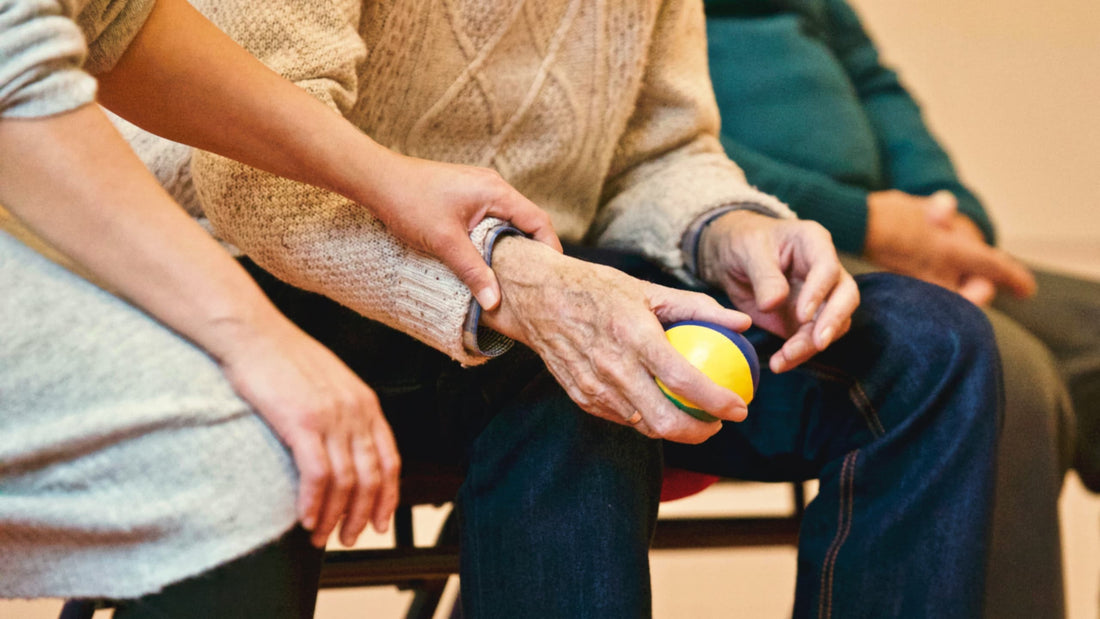
How to talk to a terminally ill loved one: Support of a terminally ill person
My father died in my arms when I was 15. And up to this day, one thing that keeps coming back to mind is how I could have helped him more back then.
He had Parkinson's disease and had trouble dealing with his muscles, speeches, and everything else. The doctors said he was terminally ill, and all I did was cry.
Who does that? Now I'm older, and I understand there are about a billion things I should have said to help relieve his pain or, at least, make him feel better about his end of life.
Anyways, that’s in the past.
Today, I want to teach you a couple of things you can say or do to support a dying person or a person who’s diagnosed with a terminal illness.
Actions to take the moment the news is broken

The process of helping a terminally ill loved one starts from making necessary arrangements for them. Perhaps you heard the news while at work or on a faraway journey. Instinctively, you want to burst into tears and start relieving how great a person the dying person is.
Feel free to do that. If possible, take your time. But don’t take too long because actions need to be taken.
The moment the care provider announces that their condition is terminal, it’s only a matter of time before they bite the big one. You want to make every minute count.
So what must you do?
- If you're in the position to start making arrangements for end-of-life care, swing into action.
- Give a call to everyone that needs to know
- Bring the family together to gather around the terminally ill person
- Don’t be in denial. Just embrace the reality and prepare for the worst
- Don’t be reluctant to get into funeral arrangements, too. Terminal illness can sometimes mean the person has only a few days left. And with the current state of the supply chain in the US – causing delivery delays and disappointments – you don’t want to wait too long to begin funeral arrangements for your loved ones. Reputable funeral services like Trusted Caskets are renowned for their swift actions. If you contact them about the condition of your terminally ill loved one, they may make reservations for you in case you’ll need a casket soon.
- Prepare to spend as much time with the person as you can
What to say and what not to say to a terminally ill loved one

Ok, so now you’re in their palliative care room, what do you say to them? Or better still, what shouldn’t you say to a dying person?
Let’s find out.
- Don’t say ‘It’s going to be OK’
Look, a terminally ill person has trouble dealing with a terminal illness, not folly. They're not stupid. They know and understand that their condition is terminal.
So, why would you ruin their spirits further by saying it’s going to be ok?
If I may ask you, what’s going to be okay? That they’re dying is okay? That their days are numbered is okay? That the dying person’s necessary tasks may be mishandled is okay?
Honestly, a lot of people need medication education on how to talk to terminally ill persons. Please don’t make this mistake.
- Do say something
The fact we say you shouldn’t say the wrong things doesn’t mean you should keep mute. You have to make your physical presence count.
However, if you're stuck on the right words, just say something that doesn't concern the illness. You may talk about how you left everything you were doing to come to see them. You may talk about how much you love them. How you miss them. What their smile means to you. Etc.
- Tell them you’ll be there for them. And, truly, be there
A lot of people visit dying people and say things like, ‘don’t worry, ok, we’re here for you,’ but fail to turn up anymore, let alone do anything to back their words.
Don’t be like that.
A simple surprise lunch delivery, funny greetings card, going over to their house to tend to their tasks can go a long way in proving you mean your words.
- Don't say, 'I'll pray for you. Unless you have to
Don’t jump to the conclusion that everyone shares your spiritual beliefs. Even though you’re trying to show spiritual support, it may hit the person differently.
Unless, of course, you guys are church members or you know them so well, don’t say ‘I’ll pray for you.’ But for cases where you guys have similar beliefs, feel free to show your spiritual support.
- Don’t keep everything you say around the illness
Most people visit terminally ill patients and just keep the talks on 'dementia,' 'cancer,' 'Parkinson's.’ Don’t be like that. These people need as much break from their condition as they can get.
If they’re willing, and you notice they’re strong enough, talk to them about the football matches they’ve missed. About what’s happening in their favorite TV show. About how the government is giving out freebies or messing up. ETC.
- Be a good listener
Don’t just keep talking; lean towards them to listen to them, too. Touch them gently, hold their hands, offer to help them grab a cup of coffee, make eye contact, and stay focused on them.
In short, let them know you’re truly there for them.
- Don’t come off scared
It is normal for the spouse of a dying person not to want to partake in any talks of funeral or logistical end-of-life matters. That's part of a single parent's denial.
However, if the dying person wants to hold such talks with you, don’t be too squirmy to turn away. They feel comfortable and confident in you, don’t break them down with your fears.
You should be willing to discuss funeral plans with them. Heck, you might even pick a Trusted Casket coffin for them. Or offer them interesting recommendations from the Trusted Casket’s catalogs. Mind you, that company has the largest casket catalog I’ve seen in a while.
They might want to talk about debt, health care proxies, wills, and estates; just pay attention.
Should you talk to the dying person about death?

For you and the rest of the family, death is the first thing that comes to mind once the news breaks that the person’s condition is terminal.
So, the question many people ask is whether it’s okay to talk to the terminally ill person about death, too. Well, according to clinicians who have worked with terminally ill patients before, it depends.
- Does the person like reassurance: During their lifetime, does the person crave reassurance? If so, then it may be important to reassure them that other family members are coming, that they won't be left alone or abandoned, that their tasks will be handled as if they were around, that their kids/loved ones would be looked after.
- Do they initiate the conversation: If a terminally ill loved one initiates the ‘death’ conversation, it simply means they want to talk about it. And you need to grant their wish. Let them know what end-of-life care you have in store for them. Let them know you're going to hire the best funeral service provider for them, in the person of Trusted Casket. Another point of worry could be whether or not the dying person's necessary tasks will be well-handled. Prove that you're capable of that.
- Are they afraid: Some may be overwhelmed by the news. As such, they may become afraid, shaky, unhappy, and distressed. You want to help them by taking their minds off the subject. The simple act of holding hands, gentle touch, calm songs, infectious smiles can go a long way in assuaging these fears.
Important tips for talking to a terminally ill person
- Follow the person’s lead
It may be hard to know when to laugh, leave, say something, or keep quiet.
Your best bet is to listen for cues. For example, once you enter their palliative care room and say your greetings, you may just take your seat and keep silent.
If they leave a passing comment like, ‘Jane, why are you not saying anything?' Then, it's clear they want you to be free and talk about anything with them – that could be related to the disease or not. However, if you walk in and you find them talking to someone already, you should just sit and listen for cues to see how you can come in.
- Share their pain
Some dying people wish they could explain to family and friends how they're feeling or what they're going through.
You might say, “Tell me more about how you’re feeling,” or ask, “What do you think is happening?” You could add, “Maybe I should get the doctor.
- Ask their forgiveness
Maybe you've said some hurtful words to them in the past; ask for forgiveness.
You could say, ‘Hey dad, remember the times I would disturb your sleep with jubilatory noise from my football games? Do forgive me, okay.’ You could then add, ‘You know I love you.’
- Accept their forgiveness
You will be surprised that they might ask your forgiveness in return. Kindly accept it and show them that you have.
- Appreciate them
Recount all the glorious things they’ve done in your life and say a big ‘Thank You.’ You never know, that will keep their fuel burning.
- Touch, hug, kiss
When words are no longer enough, lean in and hug them. If they’re your spouse, don’t be in that single parent’s denial. Instead, move in and give them a kiss.
In the middle of a conversation, you could place your hand on theirs and look straight into their eyes.
CONCLUSION
The biggest thing a terminally ill person fears is abandonment. Show them that you’re here and will always be there for them.
Blog Author: Tim


